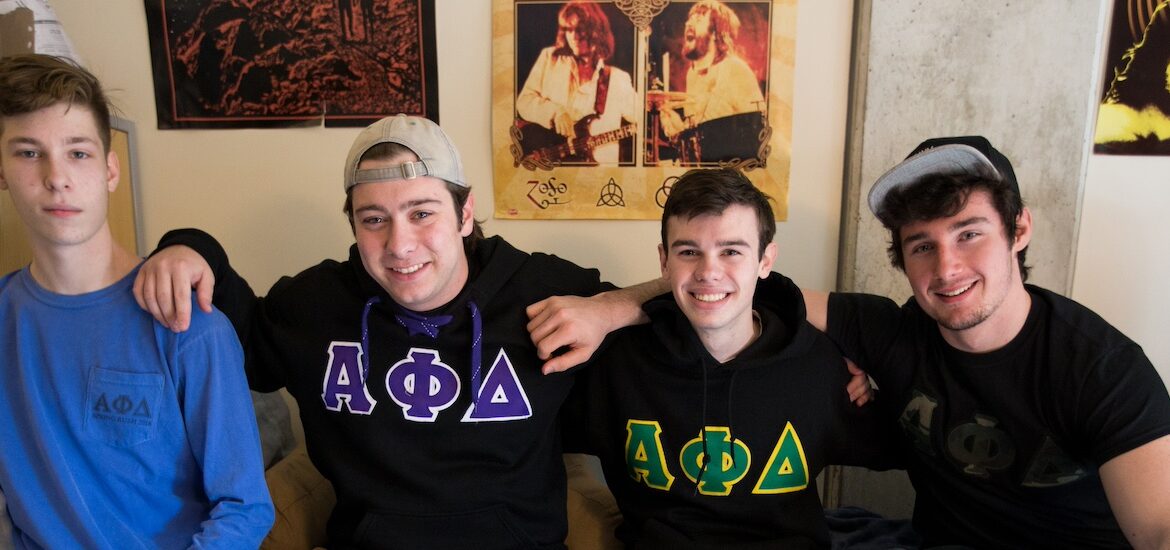Part of a series with Rowan University’s Wellness Center, this collaboration aims to educate students about personal well-being options. For further updates, follow @rowanuwellness on social. Written by Nardin Salib, Wellness Center intern and graduate student pursuing a master’s in higher education Every year at the start of the academic year, various clubs and organizations at […]
student wellness
Laughter is the Best Medicine: What College Students Need to Know
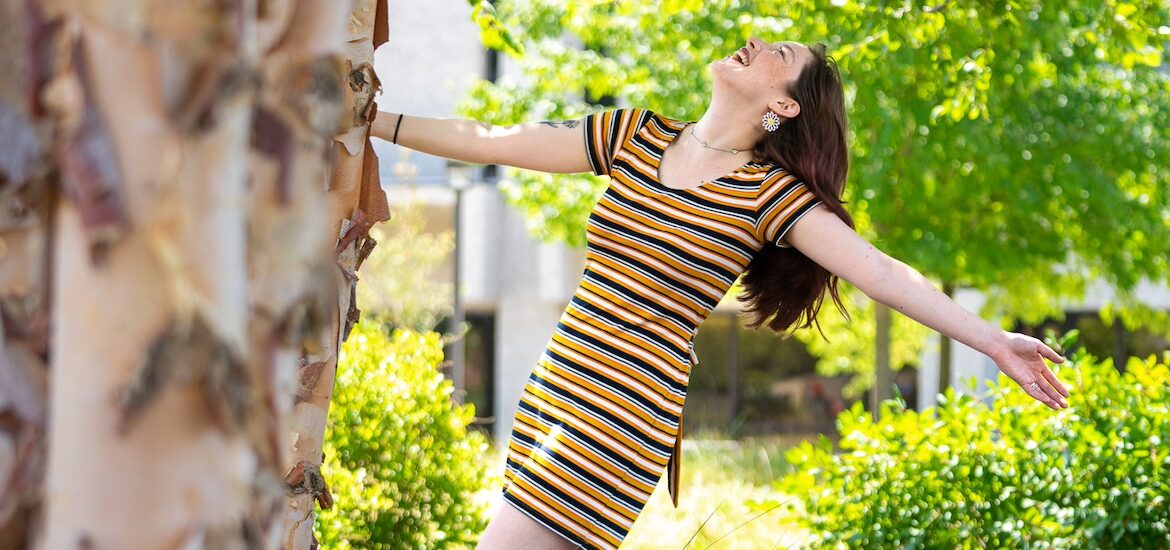
Advice for College Students, From a Wellness Center Intern Written by Anmol Patel, molecular and cellular biology major This article is part of a running series with Rowan University’s Wellness Center. This collaboration aims to educate students about personal well-being options. For further updates, follow @rowanuwellness on social. People always say that laughter is the best medicine. […]
The Health & Wellness Benefits of Pickleball
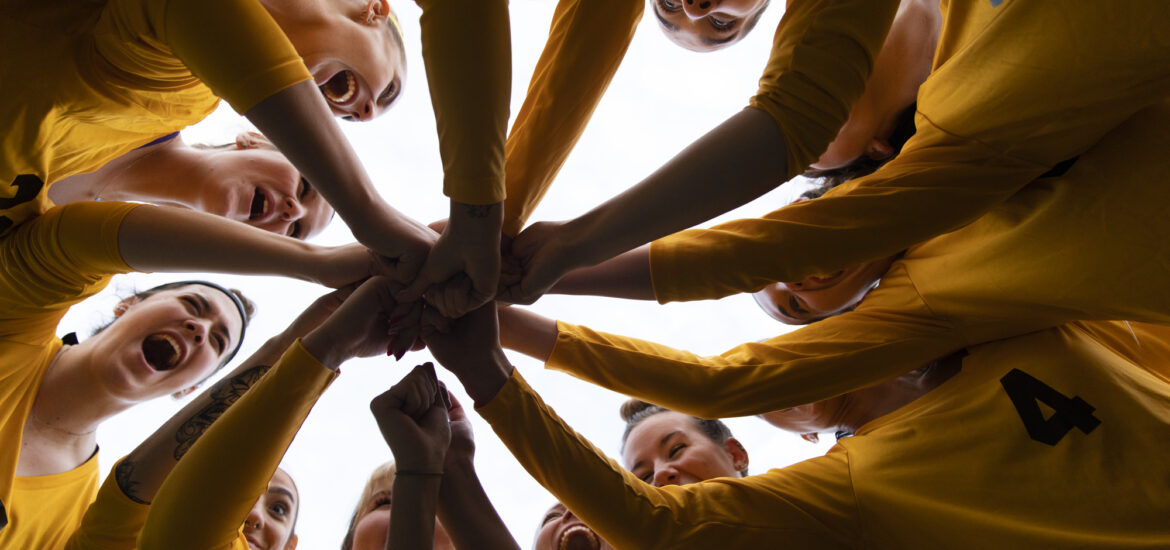
Part of a series with Rowan University’s Wellness Center, this collaboration aims to educate students about personal well-being options. For further updates, follow @rowanuwellness on social. Written by Isabella Agostini, Wellness Center intern and wellness management major Physical activity is crucial for enhancing your physical, mental, and social health and well-being in many ways. It is […]
Advice for Understanding Imposter Syndrome

Part of a series with Rowan University’s Wellness Center, this collaboration aims to educate students about personal well-being options. For further updates, follow @rowanuwellness on social. Written by Abdur Rahaman Mahmud (Aniket) Shafin, Wellness Center intern and psychological sciences major Have you ever felt like you are not where you are supposed to be? Like you’re […]
How I Parent My College Student: SGA Mom Shares

Today we hear from Lori B., a Rowan mom from Gloucester County, NJ. Lori’s daughter Paige will enter her senior year this fall as a supply chain and logistics major through the Rohrer College of Business, and holds the distinction of being a past president of Student Government Association (SGA). As an experienced Rowan parent, […]
Why Self-Advocacy Matters in College (And How to Practice It)

Part of a series with Rowan University’s Wellness Center, this collaboration aims to educate students about personal well-being options. For further updates, follow @rowanuwellness on social. More times than not, whenever we’re experiencing a personal hardship of some kind we tend to retreat into our shells like a turtle and let the issue continue to persist […]
Overcoming Overthinking: Ways Students Can Cope

Part of a series with Rowan University’s Wellness Center, this collaboration aims to educate students about personal well-being options. For further updates, follow @rowanuwellness on social. Do you ever find yourself in a quiet setting trying to get some work done but there is just a little voice in your head saying a million things at […]
The Often Overlooked Importance of Sleep

Additional Student Wellness Stories Keep reading student wellness stories to learn how Rowan Profs support their mental, physical and emotional well-being. Through Rowan Thrive, Rowan University provides a comprehensive framework designed to help students live in alignment with their values and cultivate resilience across six core areas of well-being. Internship & Experiential Learning Stories Learn […]
A Path to Personal Growth and Purpose

This article is part of a running series with Rowan University’s Wellness Center. This collaboration aims to educate students about personal well-being options. For further updates, follow @RowanUWellness on Twitter, Instagram or Facebook. With the life that we are given, it is easy to want to do tasks for the benefit of others. But, as […]
Doing Hobbies in Exchange For Our Own Mental Wellness

Additional Student Wellness Stories Keep reading student wellness stories to learn how Rowan Profs support their mental, physical and emotional well-being. Through Rowan Thrive, Rowan University provides a comprehensive framework designed to help students live in alignment with their values and cultivate resilience across six core areas of well-being. Internship & Experiential Learning Stories Learn […]
The (Abridged) Beginner’s Guide to Communication Studies

Additional Student Wellness Stories Keep reading student wellness stories to learn how Rowan Profs support their mental, physical and emotional well-being. Through Rowan Thrive, Rowan University provides a comprehensive framework designed to help students live in alignment with their values and cultivate resilience across six core areas of well-being. Internship & Experiential Learning Stories Learn […]
5 Tips For Improving Your Mental Health Before Experiencing “Burnout”

Additional Student Wellness Stories Keep reading student wellness stories to learn how Rowan Profs support their mental, physical and emotional well-being. Through Rowan Thrive, Rowan University provides a comprehensive framework designed to help students live in alignment with their values and cultivate resilience across six core areas of well-being. Internship & Experiential Learning Stories Learn […]
Our Environmental Crisis, and How a College Student Can Help

This article is part of a running series with Rowan University’s Wellness Center. This collaboration aims to educate students about personal well-being options. For further updates, follow @RowanUWellness on Twitter, Instagram or Facebook. According to earth.org, the biggest problems that our world is facing are: poor governance, food waste, plastic pollution, air pollution and agriculture. […]
The Journaling Journey

Additional Student Wellness Stories Keep reading student wellness stories to learn how Rowan Profs support their mental, physical and emotional well-being. Through Rowan Thrive, Rowan University provides a comprehensive framework designed to help students live in alignment with their values and cultivate resilience across six core areas of well-being. Internship & Experiential Learning Stories Learn […]
Manifesting a Life of Dreams: Turn Dreams Into Reality

This article is part of a running series with Rowan University’s Wellness Center. This collaboration aims to educate students about personal well-being options. For further updates, follow @rowanuwellness on social. Written by Wellness Center intern Mel Steward-Cobbs, psychology major The Power of Thoughts The concept that one’s thoughts, beliefs, intentions and emotions are inexorably linked to the […]
Interacting with the World Through Video Games

This article is part of a running series with Rowan University’s Wellness Center. This collaboration aims to educate students about personal well-being options. For further updates, follow @RowanUWellness on Twitter, Instagram or Facebook. Playing video games is a popular pastime for people of all ages, especially for younger generations who have grown up experiencing the […]
Meditation for the Unsettled Mind

Additional Student Wellness Stories Keep reading student wellness stories to learn how Rowan Profs support their mental, physical and emotional well-being. Through Rowan Thrive, Rowan University provides a comprehensive framework designed to help students live in alignment with their values and cultivate resilience across six core areas of well-being. Internship & Experiential Learning Stories Learn […]
How SMART Goals Can Make Success Easier

Additional Student Wellness Stories Keep reading student wellness stories to learn how Rowan Profs support their mental, physical and emotional well-being. Through Rowan Thrive, Rowan University provides a comprehensive framework designed to help students live in alignment with their values and cultivate resilience across six core areas of well-being. Internship & Experiential Learning Stories Learn […]
Confidence Is Not Always Consistent, And That’s Ok

Additional Student Wellness Stories Keep reading student wellness stories to learn how Rowan Profs support their mental, physical and emotional well-being. Through Rowan Thrive, Rowan University provides a comprehensive framework designed to help students live in alignment with their values and cultivate resilience across six core areas of well-being. Internship & Experiential Learning Stories Learn […]
Active Minds [VIDEO]

“Active Minds is an organization, and our main goal is to educate others about mental health,” says Rowan Active Minds Chapter President Mia Fondacaro. A national organization, the mission of Active Minds is to break the stigma surrounding mental health. The Rowan chapter “is geared toward changing the conversation, supporting one another, building community, and […]
Social Media and its Effect on Body Image

This article is part of a running series with Rowan University’s Wellness Center. This collaboration aims to educate students about personal well-being options. For further updates, follow @RowanUWellness on Twitter, Instagram or Facebook. For someone like me, I cannot go one day without using social media and its features. I check my socials multiple times […]
How To Handle Homesickness: An RA’s Perspective
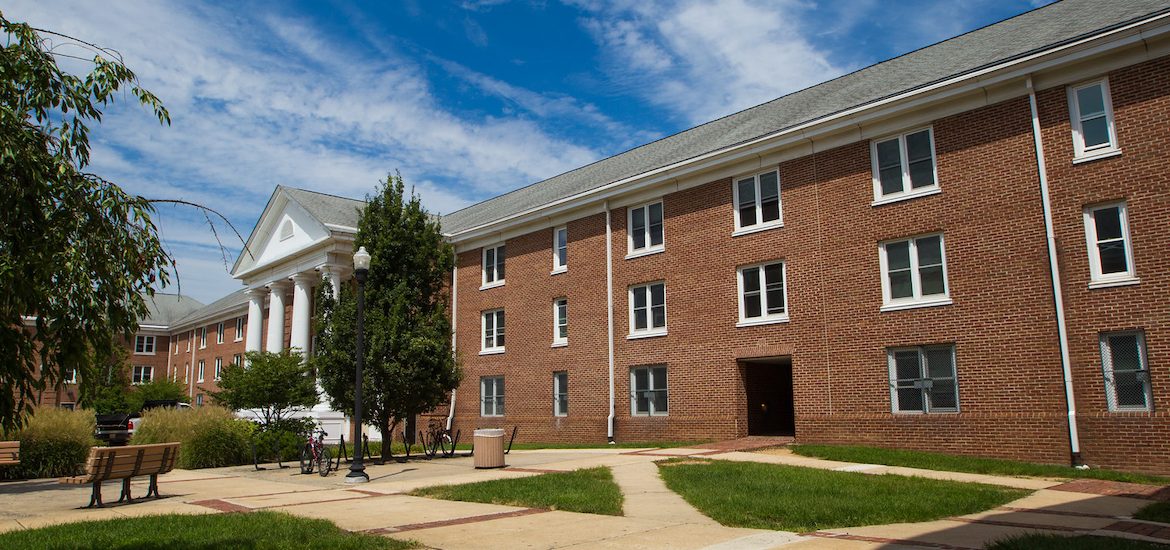
Additional Student Wellness Stories Keep reading student wellness stories to learn how Rowan Profs support their mental, physical and emotional well-being. Through Rowan Thrive, Rowan University provides a comprehensive framework designed to help students live in alignment with their values and cultivate resilience across six core areas of well-being.
3 Rowan RAs Share Their Favorite Programs
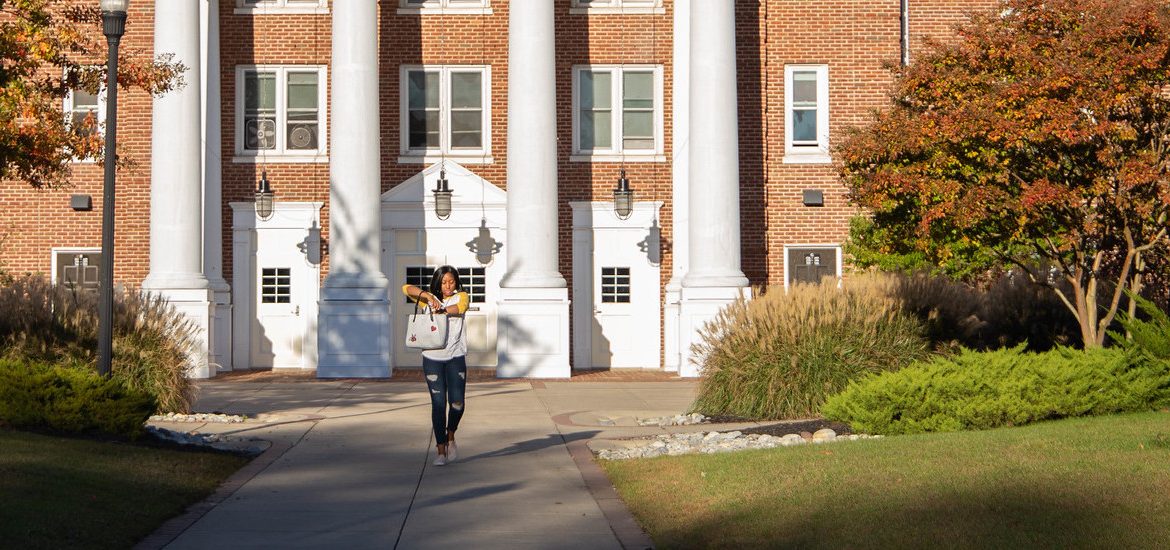
Resident Assistants, or RAs, are tasked with creating programs to connect residents with each other and the greater Rowan community. Each program is designed specifically and intentionally by the RA of the floor to promote a sense of belonging in the residence hall. Here are some programs that RAs loved to host for their residents.
Junior Keianna Williams, an RA in Chestnut Hall, shared her favorite program titled “Self Reflection.”
“I displayed a mirror outside of my room and then made a heart full of sticky notes. Each resident was asked to write something they loved about themselves in a sticky note displayed on the wall. I then handed out tiny pocket mirrors for them to keep. I told them that every time they opened the mirror, they should say something nice about themselves. This program helped promote self-esteem and self love. I also loved that it included Rowan Thrive, a wellness initiative on campus attributes of purpose.”

Sydney Ramos, a junior RA in Mimosa Hall, shared that her favorite program that she has done is a Black Lives Matter Brave space.
“This was a program that encouraged an open discussion on issues surrounding racial injustice in our communities. It also was a space where those who did not know much about the BLM movement could understand what it was and gain information and resources to have a better understanding as to why the BLM movement is so important. I had a decent outcome with residents, and they were happy to be able to have a discussion on issues that sometimes are hard to talk about. I was even interviewed by The Whit for a featured article about my program.”

Alyssa Salera, a senior RA in Holly Pointe Commons, described her favorite program that combined fun with important conversations about relationships.
“We had a Bachelor finale watch party. My residents all loved the show, both my male and female students, so we all got together, snacked on a bunch of food and desserts, and talked about the show and everything it encompassed. I loved seeing how excited they got about who the star chose to get engaged to, as each of my residents had a personal preference. We then talked about toxic relationships and the importance of mental health in regards to how it pertains to the show, they were all so involved in the conversation! It was the most I’ve heard some of my residents speak and be engaged in all semester, so it was great seeing them come out of their shell.”

Like what you see?
Story by:
Loredonna Fiore, senior public relations and advertising major
Beyond the Classroom: Kevin McCarthy and His Time with SGA

Additional Student Wellness Stories Keep reading student wellness stories to learn how Rowan Profs support their mental, physical and emotional well-being. Through Rowan Thrive, Rowan University provides a comprehensive framework designed to help students live in alignment with their values and cultivate resilience across six core areas of well-being. Internship & Experiential Learning Stories Learn […]
Queer Voices: VP of Student Life Drew Tinnin

This interview was originally featured on the Queer Voices Instagram page @queer_voices.
Biomedical Art and Visualization major Emerson Harman created the Queer Voices Project, which is working “to amplify LGBTQ+ student, faculty, and alumni voices at Rowan University through portraits and interviews.” You can also find more of their content here.

|
Name, pronouns, and identity? I am Drew Tinnin, I use he/him/his pronouns, and I identify as a gay male. What is your position at Rowan, and when did you start? I am currently the Associate Vice President for Student Life here, so I work a lot with campus involvement such as the Student Center and Rec Center, orientation, student leadership, and clubs and organizations. I started in 2010 working with orientation and student leadership programs. |
When did you come out as LGBTQ, and why then?
I’m from a fairly small, conservative town in middle-of-nowhere Missouri that had about 8,000 people and 160 people in my high school class. I went to college at a school very similar to Rowan there in Missouri, and came out during college because it was really an environment that was more conducive to me. I met many accepting faculty and staff I interacted with that supported me throughout my coming out process in college.
Has being LGBTQ+ impacted or influenced your career, and if so, how?
Education in general is fairly accepting and so that has probably contributed to my career choice. I originally was planning to be a high school speech and theater teacher, which is what I was going for in my undergrad. I really got involved in college, was an RA and a member of student government, and by working with the different staff I learned that higher education is a thing too, which is why I decided to pursue my career in higher ed. I went to grad school right after undergrad for higher ed at Bowling Green in Ohio, which is actually where I met my then-future husband as a grad student. My career choice has definitely been part of my coming out and identity development.
How has LGBTQ culture and acceptance changed throughout your time here at Rowan?
Even in 10 years here at Rowan, I’ve definitely seen a lot of changes. When I started, we only had one [LGBTQ+] student organization, the Gay-Straight Alliance. Over time I have seem the Gay-Straight Alliance morph into what is now Prism, and we now have many more queer student organizations. I was the first advisor for True Colors, which started because some trans students didn’t feel that they had the type of space that they wanted in Prism, so they started their own organization. Now we also have Queer People of Color, Out in STEM, and a variety of other opportunities for students, which is something that has definitely increased over the years.
There have also been some campus policies and things that we’ve tried to do to support students that I’m proud to be a part of. We were one of the first schools in the state to implement preferred name policies for students. We’ve also done a lot of work with single-user restrooms that are more accessible on campus, as well as some more inclusive housing options where students can choose roommates without consideration for sex or gender identity. When we built Holly Pointe, the gender neutral bathrooms were certainly something we wanted to make sure were included.
What would you say to a student or youth who’s struggling with their identity, either personally or with others?
I definitely think it’s a process that’s different for a lot of people, but I hope students are able to find the support and resources that they need here. I’ve found a lot of students and faculty are accepting and welcoming, and both wanting to learn more about others while also being supportive. I know it can be super scary to talk about identity, especially if you are questioning or just coming out, but in my experience, it really helped when I started talking about my identity with others.
For new students, I would just encourage them to get involved and explore their new community! We have many LGBTQIA+ student organizations and resources, and they should not hesitate to check them out no matter how they identify.
Like what you see?
#PROFPRIDE: Faculty Shares Advice

Dr. Stephen Fleming is Assistant Dean for the College of Humanities and Social Sciences. He offers his perspective and resources for incoming or current LGBTQIA+ students.

1. You are not alone.
College is a very common time for students to question their sexuality and/or gender identity. You are not alone, and there are resources available on campus to help you through the process.
2. It is OK to not know.
We live in a world of labels and many of us strive to fit into one of them. Understandably, students can feel pressure to quickly commit to knowing who they are and who they like. But, it’s OK to not know and to take your time in exploring these aspects of your identity.
3. Get involved.
There is so much value in getting involved with peers and educators who have similar interests as you. Whether it be a club, sport, campus employment or something else, these involvement opportunities can help you feel a sense of belonging at Rowan. Even better — you can meet new friends and build your resume in the process!
4. Assert your Name.
Rowan has a preferred name policy as part of our effort to ensuring all feel valued and welcome. If you are not being called by the preferred name that you listed on Banner, don’t be afraid to respectfully address it with your faculty, peers, etc. Almost always, the mistake is not intentional and folks are happy to do all they can to do better.
5. RU a LGBTQIA+ ally?
There are spaces for you on campus also! Don’t miss your opportunity to show your support for LGBTQIA+ members of the campus community. It is noticed and it means a lot.
Like what you see?
Story by:
Bianca Torres, music industry graduate
Photo of Dr. Fleming courtesy of Queer Voices Project
Sports and Mental Health

Junior Psychology major McCarly Thompson shares advice on how taking up exercise or participating in sports improves more than just our physical well-being.
It is safe to say that the watching and/or playing of sports has been one of the world’s greatest pastimes for centuries. From childhood, through the stages of adulthood, leading up to old age, humans all over the country participate in sports-related activities throughout their daily life.

According to the Faculty of Sport and Exercise Medicine, “The Royal College of Psychiatrists recognize exercise prescription as a treatment modality for a wide range of mental health conditions.” That’s right: Not only can exercising and participating in sports benefit us on the physical level, but also the mental level as well!
Participating in exercise and sports on a team-based or competitive level has many benefits to our mental health in ways we may not even imagine. By helping us form social connections with others, sports can prevent and decrease the chances of depression and help us create strong relationships with people of similar interest as us. Participating in these activities also do justice on the personal level by increasing motivation and self-esteem via selective hormones in the body. Physical activity is also good for children in helping them make friendships, learn how to problem solve, and work their way through a task to reach an end goal.
Clinicians have recently been promoting physical activity as a substitution for many other intervention services. Instead of writing up a prescription or putting someone in an institution, physical therapists have seen positive results in just advising several hours of physical activity a week to their patients. Ironically, it is important to note that many professional athletes do not seek mental health assistance due to the stigma behind it. The stereotype also follows that “big, strong men” don’t need to talk to anyone about their problems or feelings, when in fact this is not the case.
Therapeutic service has actually been shown to increase performance in athletes, proving a strong correlation between sport and mental health. I believe that if we as a people raise awareness of the benefits of sports/physical activity, we would see the rise of a healthier generation on the physical and mental side, and also more elite athletes, able to reach their full potential on the field.
Like what you see?
Story by:
McCarly Thompson, junior, psychology major
Photography by:
Stephanie Batista, sophomore music industry major
Surviving a Breakup: Taking One’s Power Back to Change Life Forever

Additional Student Wellness Stories Keep reading student wellness stories to learn how Rowan Profs support their mental, physical and emotional well-being. Through Rowan Thrive, Rowan University provides a comprehensive framework designed to help students live in alignment with their values and cultivate resilience across six core areas of well-being. Internship & Experiential Learning Stories Learn […]
Black Men in Medicine

Additional Student Wellness Stories Keep reading student wellness stories to learn how Rowan Profs support their mental, physical and emotional well-being. Through Rowan Thrive, Rowan University provides a comprehensive framework designed to help students live in alignment with their values and cultivate resilience across six core areas of well-being. Internship & Experiential Learning Stories Learn […]
5 Inclusive Organizations for Women at Rowan

In honor of Women’s History Month, we are highlighting clubs and organizations on Rowan’s campus that bring women together and can help other women find a community to connect with!

According to the Women in Business WIB Proflink page, “Women in Business is a network of professionals committed to empowering, supporting, and guiding the men, and especially women, of Rowan University to achieve success in their future business endeavors. With the understanding that women face unique challenges, we strive to inspire learning and communication. Our inclusive programs are dedicated to personal and professional growth through discussions, speakers, and conferences.”
Learn more and follow WIB:
https://www.instagram.com/rowanwib/
From their ProfLink page: “WIE focuses on technical engineering workshops to support hands-on skills. We hold several outreach events including the Young Innovators Fair- Greater Philadelphia Area and the WIE Teach Competition. WIE also holds the Wearable Electronics Competition and the Clubs Versus Professors Competition annually, in addition to outreach/service events, stress-relief events, and collaborations with other engineering clubs (vary from semester to semester).”
Learn More and Follow IEEE:
https://www.instagram.com/wie_rowan/?hl=en
https://www.facebook.com/WIERowan/

3. The Women of Color Alliance
According to a representative of WOCA, “WOCA is an organization that strives to create a safe place for minority women and to unite them under the common objective of changing the societal and systemic limitations placed upon them. Through self-empowerment and service, we focus on building women of diligence and tenacity.”
Follow and Learn More about WOCA:
https://www.instagram.com/rowan.woca/

4. WINGS (Women Inspiring a New Generation of Scientists)
“WINGS supports and inspires future generations of female scientists. WINGS provides networking and professional development opportunities to STEM majors,” according to their ProfLink page.
Learn More and follow WINGS:
https://www.instagram.com/ruwings/?hl=en

5. American Medical Women’s Association
“The American Medical Women’s Association (AMWA) is an organization which functions at the local, national, and international level to advance women in medicine and improve women’s health. The pre-health chapter at Rowan University works to aid its members with career development, networking, mentoring, volunteering opportunities, and education on how to reach their aspirations in the medical field. Our club supports those that wish to pursue any healthcare field, while also providing a welcoming environment and group of friends to rely on. We enjoy spending time together and creating new friendships, helping out the community, and learning more about careers in healthcare.” – Tessa Murphy, president of AMWA at Rowan
Follow and Learn More about AMWA:
Like what you see?
LEARN MORE
Story by:
Bianca Torres, senior music industry major
Photo of AMWA provided by:
Tessa Murphy
Leadership #PROFspective: Arielle Gedeon, Leader of the People Who Serves from Her Heart

Additional Student Wellness Stories Keep reading student wellness stories to learn how Rowan Profs support their mental, physical and emotional well-being. Through Rowan Thrive, Rowan University provides a comprehensive framework designed to help students live in alignment with their values and cultivate resilience across six core areas of well-being. Internship & Experiential Learning Stories Learn […]
The Importance of Unstructured Time

Additional Student Wellness Stories Keep reading student wellness stories to learn how Rowan Profs support their mental, physical and emotional well-being. Through Rowan Thrive, Rowan University provides a comprehensive framework designed to help students live in alignment with their values and cultivate resilience across six core areas of well-being. Internship & Experiential Learning Stories Learn […]
Staying Involved Virtually

Additional Student Wellness Stories Keep reading student wellness stories to learn how Rowan Profs support their mental, physical and emotional well-being. Through Rowan Thrive, Rowan University provides a comprehensive framework designed to help students live in alignment with their values and cultivate resilience across six core areas of well-being. Internship & Experiential Learning Stories Learn […]
Too Much Screen Time? It’s Time to Take a Break

Additional Student Wellness Stories Keep reading student wellness stories to learn how Rowan Profs support their mental, physical and emotional well-being. Through Rowan Thrive, Rowan University provides a comprehensive framework designed to help students live in alignment with their values and cultivate resilience across six core areas of well-being. Internship & Experiential Learning Stories Learn […]
How to Take a Break with No Break

Additional Student Wellness Stories Keep reading student wellness stories to learn how Rowan Profs support their mental, physical and emotional well-being. Through Rowan Thrive, Rowan University provides a comprehensive framework designed to help students live in alignment with their values and cultivate resilience across six core areas of well-being. Internship & Experiential Learning Stories Learn […]

